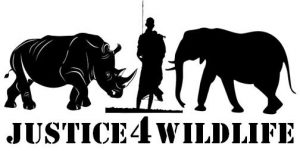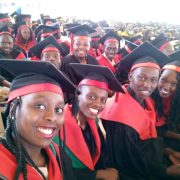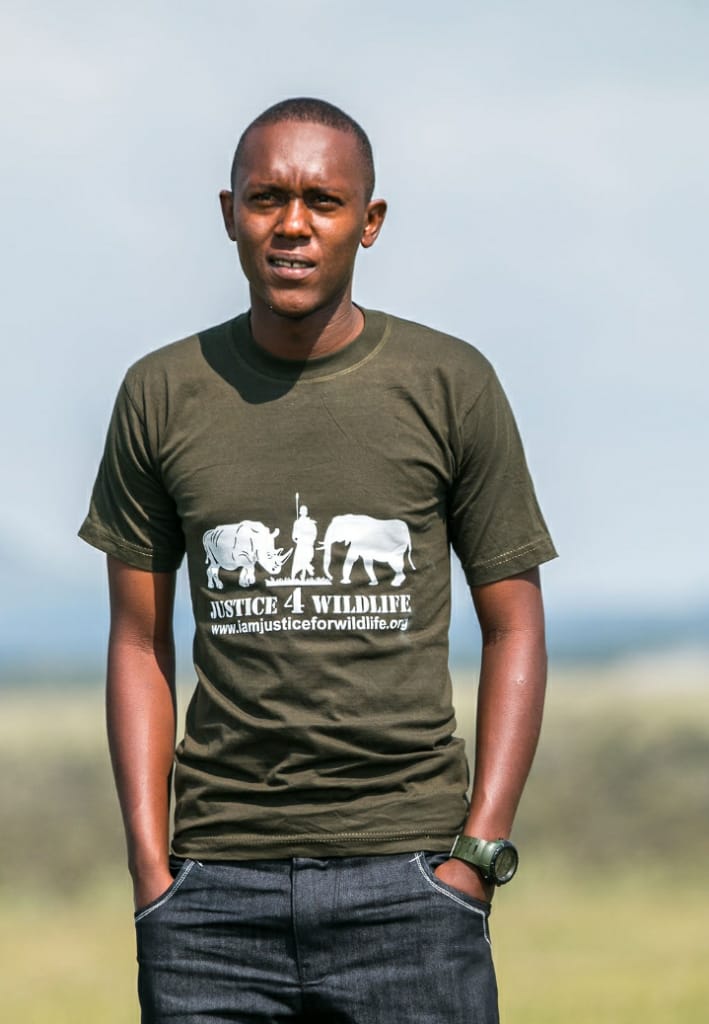After long days of studying, long hours classes, countless sleepless nights, challenges, obstacles, successes, failures, blood, sweat, and tears, the feeling of graduating from college is truly surreal.
One works so hard for what feels like a long-awaited day and then suddenly it dawns and then it feels like it went by so fast. In the blink of an eye, your entire college career is over and you’re on to the next chapter in life. It’s a pretty big deal.
Naturally, graduating gives us a plethora of emotions. It’s as if all of the fluctuating emotions we’ve experienced over the course of our college years bottles up into one huge melting pot of feelings, and it all just bursts on graduation day, but what to do next is normally the bit that hits us later and most often are times we find ourselves back up country (ushago) having sent numerous application letters for internships to the various conservation organizations with no response.
Well, I believe that’s what we’ve all gone through especially those of us who took up courses in the field of conservation. I’m in various conservation-related WhatsApp groups where the majority of my target audience are youths who have completed courses in this field eager to be engaged in any conservation organization for field exposure but have no leads.
Maybe having gone through the system I can assure you that it’s never easy but there’s always a starting point. From my personal experiences, I believe you can pick up a thing or two and at the end of the day get the much-desired exposure as you wait for a response for the numerous internship applications you’ve sent,
There are conservation organizations that I wish you could be part of either as a student or a volunteer if you’ve just cleared your course. This exposure made a great impact as a foundation for my career in the field of conservation. Just to highlight a few of them;
Friend of Nairobi National Park
FoNNaP is a non-profit, membership-driven organization dedicated to assisting the Kenya Wildlife Service (KWS) in nurturing and preserving biodiversity within Nairobi National Park and the broader ecosystem to which the park belongs. We have noticed an upsurge of pressure on the survival of wildlife in the past years and here FoNNaP comes in.
FoNNaP works closely with KWS and communities adjacent to the park to develop and implement conservation and rangeland management projects in and around the park. Based at Langata Link (office No.1) Langata South Road, FoNNaP has been instrumental in the maintenance of rangelands south of the park keeping open sections of the wet season migration routes and dispersal areas historically used by wild animals.
FoNNaP remains committed to a cohesive conservation strategy allowing wildlife and community members to co-exist in the existing dispersal areas. Measures have been taken to mitigate human-wildlife conflict through the Lion Entry Deterrent (LED) Systems project. This project concurrently helps to conserve the environment as it uses solar-powered lights. FoNNaP members participate in the bi-monthly game count in and around the park to monitor the wildlife trends and movements for accurate documentation. They also benefit from informative meetings and activities such as lectures, walks or films each last Saturday of the month as part of our awareness campaign.
Members of the public are kept informed about the happenings of the park through FoNNaPs newsletters circulated online, interactive blogs, Facebook page and twitter handles. The funds raised from membership registration and merchandise sold such as T-shirts, Shirts, Books, Calendars, Wall hanging e.t.c. go towards supporting the FoNNaP office administration, supporting KWS security services for the park, lion lights installation, lobby, advocacy and educational activities. All of FoNNaPs activities are lots of fun!
Get close and personal by joining them
For details on how You can get involved or for further information, contact FoNNaP on fonnap1@gmail.com. To access the fonnap blog, visit http://fonnap.wordpress.com. On twitter, visit http://twitter.com/fonnapkenya.By telephone, FoNNaP can be reached on +254723690686
Friends of City Park
Friends of City Park is a volunteer organization that started in 1996 in response to various challenges faced at City Park including land grabbing, cutting of trees, garbage dumping and other pressures that kept on degrading the park. Our Dream is to ensure that every Nairobi Resident has Access to Green Space. Our five-year Vision is to see City Park clean, safe and accessible to all, especially children. It will have cultural, educational and nature activities. It will be conserved in spirit, content and function as a bio-diverse and historic park with secure boundaries.
Activities undertaken
- Advocacy through education and publications: Over 250 activities at City Park including monthly nature walks, pollinators garden, educational treasure hunts for children and young adults, river clean-up, Nai ni Who events, tree planting.
- Policy and Government support: to Nairobi City County Government, the National Museums of Kenya, National Environment Management Authority and the National Lands Commission in protecting, preserving and publicizing the park.
- Scientific Inventory: In conjunction with experts from the National Museum of Kenya, we have conducted four baseline surveys of flora, fauna, river conditions and land tenure.
- Monitoring and prevention of land grabs, habitat and cultural degradation by reporting of the destruction of the forest, loss of land, encroachment, publicity about infringement, coordination with government and demands for rehabilitation.
- Training the next generation: Training nature guides and tourist guides and educating hundreds of children about nature.
- Publicity: Working with the media on issues on conservation.
HOW TO BE INVOLVED
Please join our free mailing list and activities detailed on our webpage.
You can give a small contribution, even of KES 1,000/- to support us.
Please come for our free guided walks every first Saturday of the month.
Buy our guidebook. This is an excellent resource that talks about the park’s facilities, history and wildlife @ksh450
Tell everyone in your network about this incredible island of Beauty.
Contacts: Email: cityparkfriends@naturekenya.org, Phone: 0739200216
Website: http://friendsofcitypark.org
Nature Kenya
Nature Kenya—the East Africa Natural History Society (EANHS)—is Africa’s oldest environmental Society. We were established in 1909 to promote the study and conservation of nature in eastern Africa. Located at the National Museums of Kenya grounds, membership entails Unlimited free entry to Kenya’s National Museums and museum sites. My favourite activity since joining in 2012 free weekly guided nature walks with experienced and professional ornithologists.
Nature Kenya members today continue their active interest in natural history by joining working groups for Birds, Insects, Mammals and others, and action groups including Friends of Nairobi Arboretum, Friends of City Park and the Nature Kenya Youth Committee. The Society continues strategic research collaboration with the National Museums of Kenya, the host and home for the Society. A monthly newsletter, annual magazine, regular e-mail notices and social media presence keep members and the public informed.
Volunteering with Nature Kenya
Volunteers are very valuable individuals who volunteer their time and expertise to provide an important service to Nature Kenya and help further its mission of connecting nature to people. In turn, Nature KENYA gives support that is useful in gaining valuable experiences and a sense of personal satisfaction. Nature Kenya committees and staff are only too happy to receive the assistance of volunteers from time to time. Volunteer appointments may last from 3 months to 1 year, although no specific time commitment is required
Activities at Nature Kenya and Museums of Kenya
- Enrol for an internship at the Zoology department and rotate through the Mammalogy, ichthyology and ornithology units for a great exposure from the staff
- Join the Tuesday bird ringing crew that happens every Tuesday and end month at Karara – Arocha in Karen and learn about Birds
- Join the Birdwalks to different locations led by Nature Kenya youth committee and also join the potluck activities.
- Volunteer with Nature Kenya youth committee during their awareness programmes in schools and hiking activities, tree planting on a different location
- Participate during the Biannual waterfowl counts within wetlands in Nairobi and on rift valley lakes
- Attend activities at the arboretum and free talks held by various scientists and organised groups at the Museums.
- Be a nature Kenya member and enjoy a variety of privileges inclusive of free museum entries around the country and participation in their activities.
If you are interested in joining as a volunteer write to office@naturekenya.org
Wildlife Clubs of Kenya
I believe we have all been members of WCK at some point I normally ask my friends from campus who are yet to get absorbed or settled in the field of conservation ” are the schools around your home members of WCK?” most often the response is that they are not certain or have no idea. Guess its the same with you isn’t it…
You can become an ambassador start a wildlife club in the schools surrounding your neighbourhood, register the schools and get the pupils engaged in the various diverse programs that WCK has; from tree planting and starting up nurseries, conservation education and outreach programmes the list is endless and you have the potential and capacity through the support of the organization.
More than 2 Million youth have benefited from conservation education programmes since its inception and most people holding government and non-government jobs in tourism and environment-related disciplines owe their interest from being members of WCK in the youthful age.
WCK has over 3000 registered institutions and seven regional offices demarcated along broad thematic areas: Rift valley-alkaline lakes ecosystem, Nairobi-savannah grasslands ecosystems and Eastern-semi arid ecosystem. WCK encourages schools, colleges, individuals and organizations to be members and support conservation efforts. Member schools and colleges learn and participate in conservation activities.
You can register the schools and inspire the young pupils, organize for educational trips to various parks and by doing this you will have raw field exposure.
Membership benefits
3 issues of Komba-WCK magazine
Reduced fee to KWS Kenya National Parks and Reserves
Free lectures and video/slide shows
Borrowing wildlife video films at reduced rates
Memberships rate accommodation at WCK hostels
WCK roadshows by the Mobile Education Unit
Individual (Associate) and Cooperate members also enjoy the above benefits save for reduced fee to KWS Kenya National parks and Reserve as this is limited to school groups.
Interested parties are requested to contact us at the address below
The Membership Clerk
Wildlife Clubs of Kenya
PO BOX 20184,00200 Nairobi
winnie@wildlifeclubsofkenya.org/windwiga@yahoo.com
The list of conservation organizations in East Africa is quite long, the exposure you require is closer than you think. Feel free to share your experience with us and help us inspire a fellow youth
“For most of history, man has had to fight nature to survive. In this century he has to realize that in order to survive he has to protect it.” Jacques-Yves Cousteau Here we celebrate the unsung wildlife heroes in the grassroots doing remarkable work to conserve our wildlife heritage, Get to learn about wildlife from a ranger/ ecologist in Kenya a freelance eco-traveler, experience the diverse cultures and African heritage from the natives and take an adventure to new destinations to learn about rare attractions that are hardly talked about and to top it all up some of the best wildlife photographs that will make you reconnect to your wild side appreciate everything around us and fall in love with the natural world, because “It is not enough to love the natural world; the point is to defend and preserve it.” Edward Abbey
Our wildlife, our responsibility. When it comes to standing up for our wildlife it’s better to be outspoken than unspoken.


